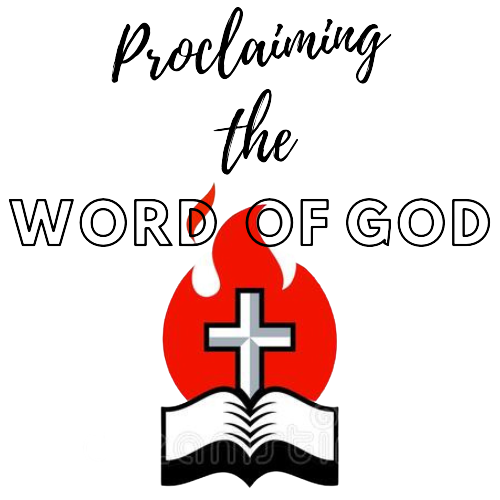In times of uncertainty God rises leaders and equips those leaders to carry out His will and purpose. We can observe some model leadership characteristics as well as how it looks to lead God’s people to a restoring relationship with Him from Nehemiah.
Life Prospective – we can observe that Nehemiah was placed in a special position. Nehemiah was placed in a position to obtain consent from one of the most powerful Kings of his time, King Artaxerxes. Nehemiah requests that King Artaxerxes allow him to rebuild the wall of Jerusalem. Now as many may remember from Sunday school Nehemiah was cupbearer to the King having access to him daily. Ester, Denial and Joseph were also placed in a unique position to faithfully serve God in a capacity that would affect thousands if not millions of lives. In spit of extreme testing these individuals proved faithful and ultimately brought glory to God:
* Ester persuade the king to retract an order that was implemented to annihilate the Jews throughout the empire. Ester – 4:14 For if you keep silent at this time, relief and deliverance will rise for the Jews from another place,but you and your father’s house will perish. And who knows whether you have not come to the kingdom for such a time as this?”
* Daniel 2.48 – Daniel prays, God answers, Daniel interprets Nebuchadnezzar’s dream and is honored and made ruler over the whole province of Babylonand chief prefect over all the wise men of Babylon.
* Genesis 41:40-41 Joseph interprets Pharaoh’s dreams and is told that “You shall be over my house, and all my people shall order themselves as you command. Only as regards the throne will I be greater than you.”
41And Pharaoh said to Joseph, “See, I have set you over all the land of Egypt.”
First we observe that when Nehemiah hears the news that the wall of Jerusalem was broken down, and its gates were destroyed by fire. He
sat down and wept and mourned for days in fasting and praying
– it is important to note that the tragedy moved him to prayer & fasting first and not to act impulsively (foolishly). Rather in his prayer he was very specific confessing not only his sins but also the sins of the people. He also recalls what the commands were (are). So, if he did forget the commands he actually goes and retrieves them, he doesn’t generalize, rather he takes approaching God seriously and acknowledges (repents of) the original transgression before God.
He said, “O LORD God of heaven, the great and awesome God who keeps covenant and steadfast love with those who love him and keep his commandments, let your ear be attentive and your eyes open, to hear the prayer of your servant that I now pray before you day and night for the people of Israel your servants, confessing the sins of the peopleof Israel, which we have sinned against you. Even I and my father’s house have sinned. We have acted very corruptly against you and have not kept the commandments,the statutes, and the rules that you commanded your servant Moses. 8Remember the word that you commanded your servant Moses, saying, ‘If you are unfaithful, I will scatter you among the peoples, 9but if you return to me and keep my commandments and do them, though your outcasts are in the uttermost parts of heaven, from there I will gather them and bring them to the place that I have chosen, to make my name dwell there.’
(Nehemiah 1:3-9)
Second, Nehemiah asked for favor/permission from King Artaxerxes to rebuild the wall (Nehemiah 2:5). It is safe to assume that Nehemiah was trustworthy for he was the king’s cupbearer and Jerusalem was a conquered city, rebuilding could lead to a revolt, because such an act could revitalize the people.
* A cup-bearer was an officer of high rank in royal courts whose duty it was to serve the drinks at the royal table.
Third, Nehemiah first carefully inspects the Jerusalem walls to get an understanding of the task and what it will take before he gives the orders to the people on reconstruction. In other words he consults with God then assesses the situation by night and alone to avoid distraction and interruption. Then he is able to give instruction from a position of understanding:
“I (Nehemiah) went out by night by the Valley Gate to the Dragon Spring and to the Dung Gate, and I inspected the walls of Jerusalem that were broken down and its gates that had been destroyed by fire. 14Then I went on to the Fountain Gate and to the King’s Pool, but there was no room for the animal that was under me to pass. 15Then I went up in the night by the valley and inspected the wall, and I turned back and entered by the Valley Gate, and so returned. 16And the officials did not know where I had gone or what I was doing, and I had not yet told the Jews, the priests, the nobles, the officials, and the rest who were to do the work.” (Nehemiah 2:13-16)
Fourth, Nehemiah does not allow opposition or adversity to stop him from fulfilling his God given Duty, God’s work, (he is committed and confident in what God is doing) in spite of being mocked and threatened
Nehemiah:
–Mocked in 2.19 “But when Sanballat the Horonite and Tobiah the Ammonite servant and Geshem the Arab heard of it, they jeered at us and despised us and said, “What is this thing that you are doing? Are you rebelling against the king?””
– Threatenedwith military attack in 4.7 – But when Sanballat and Tobiah and the Arabs and the Ammonites and the Ashdodites heard that the repairing of the walls of Jerusalem was going forward and that the breaches were beginning to be closed, they were very angry. 8And they all plotted together to come and fight against Jerusalem and to cause confusion in it.9And we prayedto our God and set a guard as a protection against them day and night. (Nehemiah 4:7-9)
I. First he prays, seeks God about the particular situation
II. Second he consults with the authorities (Romans 13:1)
III. Third he inspects/assesses the situation and did not foolishly or prematurely run out and start a project that he was ill equipped to handle
IV. Fourth Nehemiah does not allow mockery or threats to distract him from what God has called him to do.
V. Ezra expounds on the Law (God’s Word is explained & it is central in leading to repentance and then revival) (Nehemiah 7:73-9:37)
Image from: https://www.christiantruthcenter.com/end-time-its-definition-beginning-and-end/

